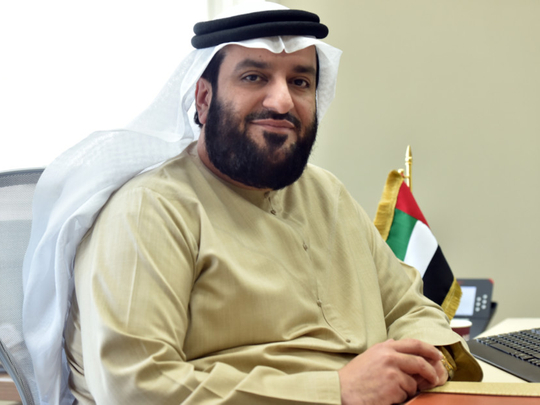
Abu Dhabi: In the early 1970s, there was no electricity in Khor Fakkan and people used to sleep at night on the roof of villas to beat the scorching heat. There was an open cinema in Khor Fakkan and people could watch the late-night show from their rooftops before they went to sleep.
An Emirati, who grew up in that small town, went to the US for higher studies and became a top official of the UAE, says when he hears ‘India’, the first thing that comes to his mind are the scenes of Bollywood films he watched from the rooftop.
“I still remember enjoying the fight scenes of Amitabh Bachchan and Dharmendra in Bollywood movies when I was a kid [at the age of 5-6]. I can still hear the noisy punches rained by Bachchan …,” Mohammad Jalal Al Raisi, executive director of WAM, the official news agency, told Gulf News in an interview on Tuesday.
Al Raisi, 46, said his generation of Emiratis’ understanding of India from Bollywood movies was further enriched by real-life stories of many Indians for whom Khor Fakkan was a gateway to the UAE. Many Indians, especially from coastal states of Kerala, Maharashtra and Gujarat, set sail by boats from their hometowns, looking for better prospects in the UAE and used to land on the coasts of Khor Fakkan. “Emirati fishermen and sailors used to tell the stories about Indians whom they saved from sea or found on the shores. They used to help them,” Al Raisi said.
People in coastal towns are not scared of strangers and always help them. “Because they being sailors have the similar experience of being stranded in unknown lands.”
India came to his life as a taste when his mother brought Indian spices from Mumbai where she went with his brother for medical treatment. “The first day after her return from Mumbai, I told her the food tasted excessively spicy. But, she said she did not feel so. I retorted that after having spicy food in Mumbai everyday for a while, it was normal for her!”
Apart from medical treatment, many Emirati families used to travel to Mumbai for shopping. Clothes from Mumbai were popular among Emirati women. Many people brought clothes and sold them at Sharq Souq, the major market in the town.
Then, when his father started a construction company, most of the workers were from India. “He [father] picked up a little bit of Hindi also.”
Many Emiratis had trade relations with India and they brought goods by boat from Mumbai, Hyderabad and Calicut [now Kozhikode].
Indians set up the prominent businesses in Khor Fakkan, he said. The first hotel in the town was named after an Indian city — “Calicut Hotel”. Now it operates as a restaurant. The first supermarket called ‘Sajitha Supermarket’ grew up as a retail chain. At Sharq Souq, most of the traders were Indians. “We are happy to see that Indians who started their businesses prospered and expanded further.”
Al Raisi always kept his Indian links. He visited India several times, at least four times for his parents’ medical treatment in Coimbatore and Kozhikode.
“I am happy to see that relations between both countries have grown to the Comprehensive Strategic Partnership. Given the history of affinity of both nations and peoples, this development is a natural and logical conclusion,” he said.
The leaders of both nations understand how important it is to be partners for a better future, he said.












